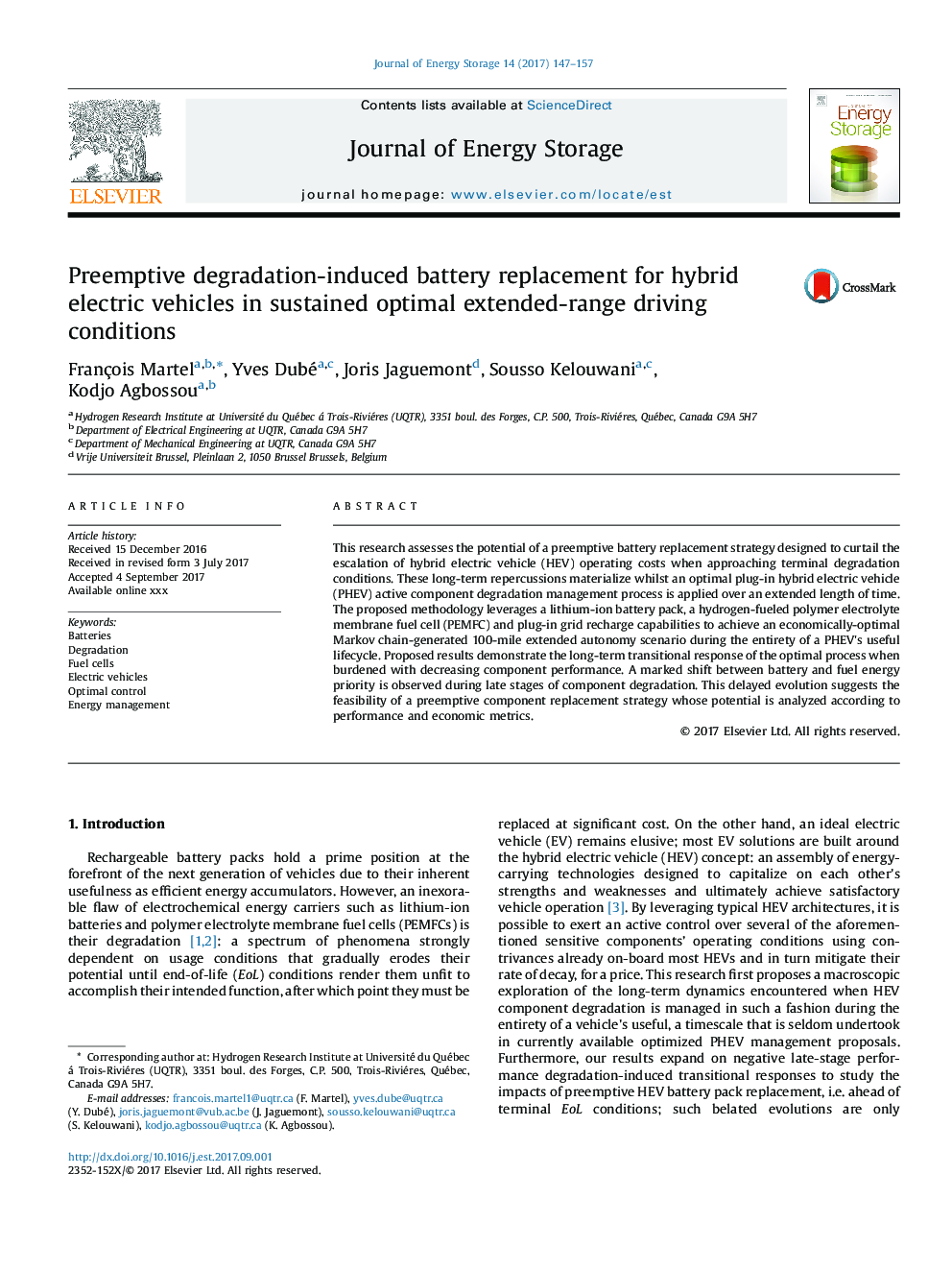| Article ID | Journal | Published Year | Pages | File Type |
|---|---|---|---|---|
| 7540259 | Journal of Energy Storage | 2017 | 11 Pages |
Abstract
This research assesses the potential of a preemptive battery replacement strategy designed to curtail the escalation of hybrid electric vehicle (HEV) operating costs when approaching terminal degradation conditions. These long-term repercussions materialize whilst an optimal plug-in hybrid electric vehicle (PHEV) active component degradation management process is applied over an extended length of time. The proposed methodology leverages a lithium-ion battery pack, a hydrogen-fueled polymer electrolyte membrane fuel cell (PEMFC) and plug-in grid recharge capabilities to achieve an economically-optimal Markov chain-generated 100-mile extended autonomy scenario during the entirety of a PHEV's useful lifecycle. Proposed results demonstrate the long-term transitional response of the optimal process when burdened with decreasing component performance. A marked shift between battery and fuel energy priority is observed during late stages of component degradation. This delayed evolution suggests the feasibility of a preemptive component replacement strategy whose potential is analyzed according to performance and economic metrics.
Related Topics
Physical Sciences and Engineering
Energy
Energy (General)
Authors
François Martel, Yves Dubé, Joris Jaguemont, Sousso Kelouwani, Kodjo Agbossou,
